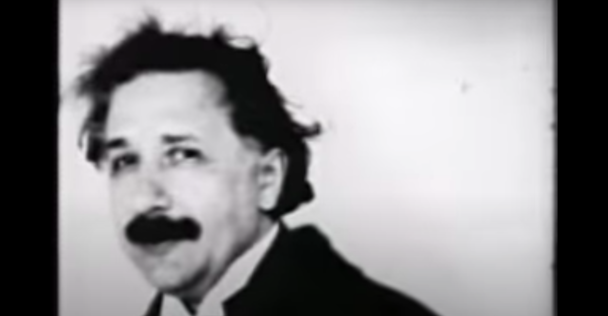Why I’m rewatching Apple’s ‘Think Different’ in lockdown
Dentsu Aegis Network’s Jeff Tan finds mid-pandemic inspiration in Apple’s 1997 classic.

One of my favorite marketing campaigns of all time is ‘Think Different’ from Apple in 1997. The centerpiece was a masterful TV ad called ‘Here’s to the Crazy Ones'.
As I reflect upon today and ponder what our world will be like post-pandemic, the 'Think Different' sentiment rings truer than ever. It perfectly captures the mindset of innovation at the personal, individual level.
At the end of my talks and workshops, I regularly play this video; I see it as a call to action. It’s an inspiring leave-behind that imprints the message: only you have the power to make a difference in this world.
The message is clear: don’t be afraid to innovate. Leave your mark. Even if it scares you.
“Here’s to the crazy ones.”
Slow stringed instruments overlaid with a simple major key piano melody set the scene as black and white images of first Albert Einstein and then Bob Dylan appear looking wistful and thoughtful.
“The misfits. The rebels. The troublemakers. The round pegs in the square holes.”
Originally the plan was to use Steve Jobs as the narrator (in the movie Jobs with Aston Kutcher, the closing scene is of a humble Jobs speaking into the microphone as images of his team flash on the screen – shiver-inducing stuff).
Two versions were recorded, one with Jobs and one with Richard Dreyfuss, an American actor. On the day of airing, Jobs decided to proceed with the Dreyfuss version as he didn’t want the focal point to be him.
I respect this decision immensely as it personifies the spirit and the ambition of his vision – celebrating a personal innovation mindset in millions of others, not himself.
“The ones who see things differently.”
Other innovators appear throughout, including Martin Luther King Jr, Mohammad Ali, John Lennon, Maria Callas, Mahatma Gandhi, Jim Henson and Pablo Picasso.
“They're not fond of rules. And they have no respect for the status quo.”
Each of these innovators was chosen by Jobs as they represented a personification of the ‘Think Different’ spirit. They tried to change something. They pushed. They prodded. They probably pissed a lot of people off in the process by creating something to change the status quo.
“You can quote them, disagree with them, glorify or vilify them.”
Woodrow Wilson once said” “If you want to make enemies, try and change something.” I relate to this. Being an innovator isn’t easy and it won’t win you friends. Anyone who has tried to implement a change initiative in the workplace, or even convince their buddies to meet at a different bar to the regular hangout would relate.
“About the only thing you can't do is ignore them. Because they change things. They push the human race forward.”
Humans evolved to feel a natural disinclination for change. Most of our caveman ancestors stayed firmly within the safety and norms of our immediate tribal unit. To try something different, or to go somewhere new often meant risking starvation, disease or attack.
Today, we feel an instinctive warmth toward the status quo, the “way things are done.” It gives us comfort. It would have been a brave, innovative Neanderthal who led his tribe across unknown mountains to find new plains.
“And while some may see them as the crazy ones, we see genius.”
Jobs recognized this. He wanted Apple to not necessarily have mainstream appeal (oh the irony today) but be desirable to the minority of people who aligned to this outcast challenger mindset. Those who saw themselves as rule-breakers. Those who had a fiercely independent drive. Those who wanted to better themselves, their communities and their world.
“Because the people who are crazy enough to think they can change the world, are the ones who do.”
You have probably heard the phrase ‘the new normal’ dozens of times in the past weeks. Why not use these unique times to reflect upon the old normal?
This means analyzing inherited limitations; the invisible boundaries and restrictions that are drawn around you. Many times, you may not even realize they exist.
These are the unspoken norms, ‘the way things are done’ that are perhaps limiting your value, your potential, your ability to innovate and make your mark. Ask loudly and coherently “why do they exist?” If you cannot find a compelling answer, use this as your chance to improve things for the better.
Because if it’s not you, and it’s not this moment, then who else should change the world, and when?
Jeff Tan is innovation solutions officer at Dentsu Aegis Network
